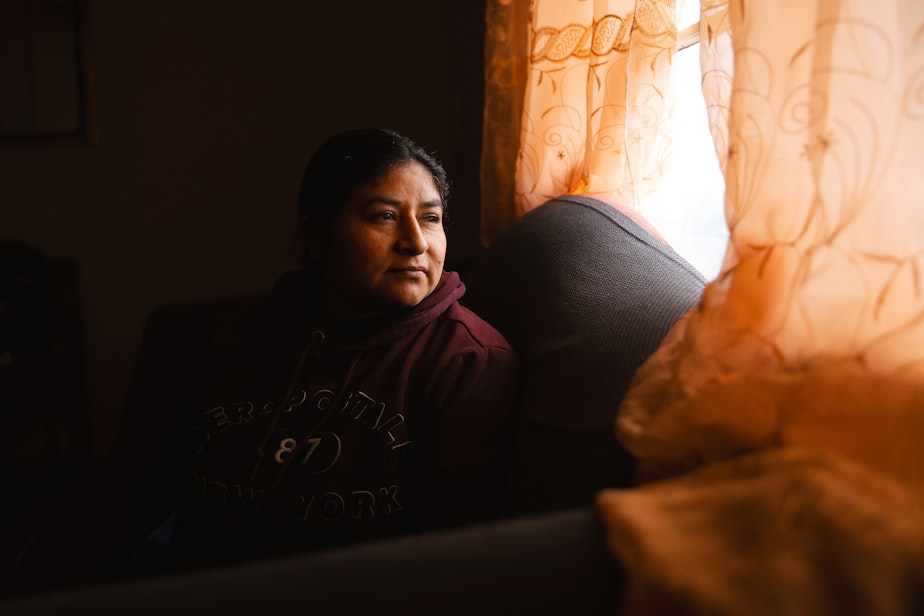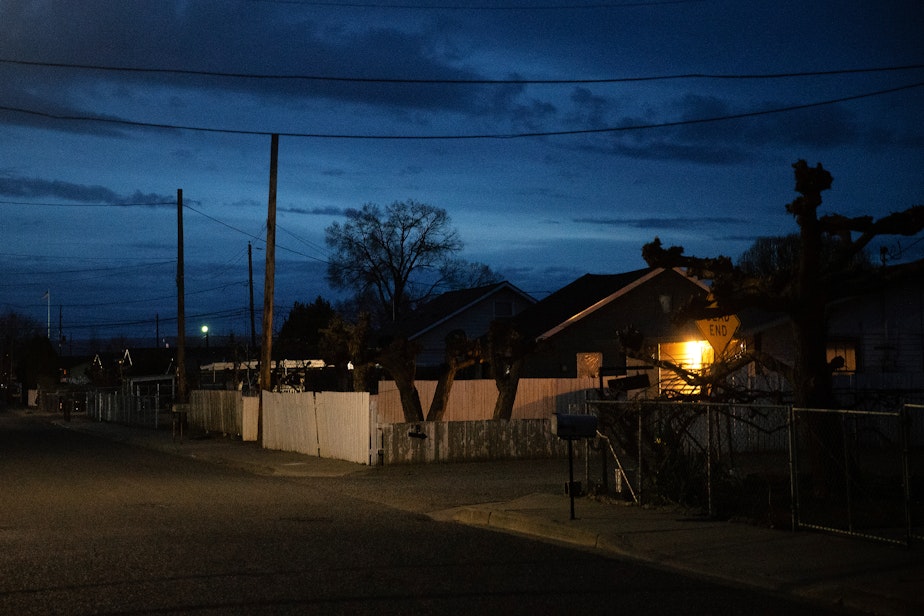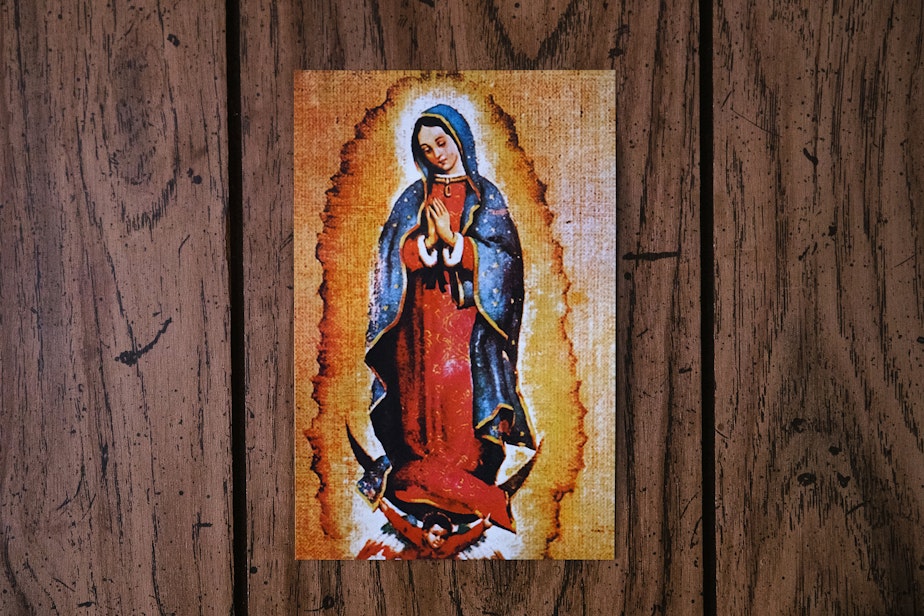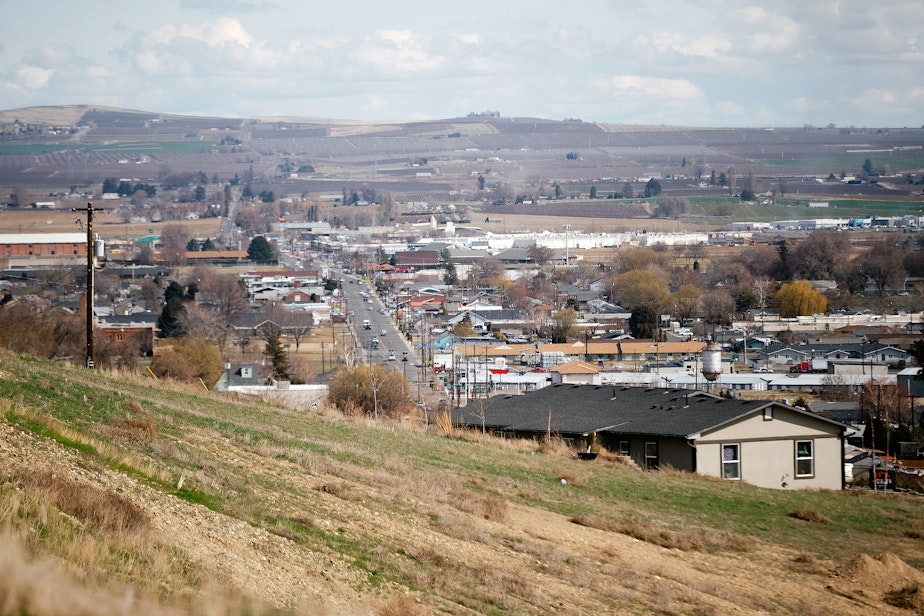Peruvians in the Yakima Valley on edge after couple deported by ICE

W
hen Julia and her three kids fled her abusive spouse and Peru’s growing instability three years ago, they put down roots in — of all places — Sunnyside, Washington. It’s a small, majority-Latino city in the state’s agricultural Yakima Valley.
Julia chose Sunnyside because she has an uncle there. When she got there, she found a pretty recently arrived and very tight-knit Peruvian community.
“Just over the bridge [from my house], a fellow Peruvian has a big property,” Julia said in an interview in Spanish. “We used to get together there — for meals, for soccer games, for all kinds of activities.”
But not anymore.
“That’s all over,” Julia said. “Now no one gets together. Everyone just stays in their own houses, afraid.”
Julia and her kids, like many Peruvians who’ve fled their country in recent years, have requested asylum. That means they’ve told the U.S. government that they’re fleeing persecution and are asking for protection — that is, permission to stay — under international law. Asylum seekers like Julia are legally allowed to stay in the U.S. at least until their immigration hearing.
But now, despite that legal protection, many asylum seekers are scared. If they make any misstep — like missing a hearing — they can lose their legal status. Lawyers say even people with pending hearings have sometimes been picked up by immigration enforcement.
Shortly after President Trump’s inauguration, ICE picked up and deported a Peruvian couple in Sunnyside. Friends say they were asylum seekers who had missed a hearing. Now, the whole community is on edge.

RELATED: ICE detains leader of farmworker union in northwest Washington state
Safety in Sunnyside
KUOW isn’t publishing Julia’s last name because of concerns due to her pending immigration case. She has a court date in 2027. In the meantime, she said, her kids have learned English and adjusted to life in Sunnyside. Two of them are in high school.
“They have friends; they play soccer,” Julia said. “My son loves soccer and my daughter likes it, too.”
Julia’s eldest is 20 years old, out of high school, and works in the valley’s orchards.
Julia didn’t tell KUOW the specific reasons she’s applying for asylum. But thousands of people have left Peru to go to the US, Canada, and Europe in recent years — often because criminal gangs have targeted certain groups for kidnappings, extortion, or sexual exploitation.
“To be perfectly honest, I am very scared [to be deported], because Peru is in a very bad place at the moment,” a Peruvian immigrant who didn’t want to be named told KUOW in Spanish. “It’s a crisis. There’s no work. There’s no safety or security.”
Julia came to the U.S. in part because her husband was abusive. She felt safer here — until the Peruvian couple, acquaintances of hers, were picked up by ICE.
Now, she and her kids only leave the house for school, work, and to go to church.
“My feeling of freedom has been taken away,” Julia said. “The smile I had, the happiness of coming and going, is gone. I now live with stress, with fear, with uncertainty.”
RELATED: Cesar Chavez Day celebrates a lifetime fight for justice for farmworkers

Legal right to asylum
Asylum seekers like Julia have the right to live in the U.S. while their cases work their way through the courts, said Elizabeth Benki, a lawyer at the Northwest Immigrant Rights Project.
“Asylum is a legal relief for individuals who have a fear of persecution in their home country,” Benki said. It’s a legal definition outlined by the UN, she added. “Someone who is a refugee has met those legal requirements outside the United States and then has entered. Asylum seekers come to the United States,” Benki explained, “and then apply once they're here.”
Asylum seekers have permission to be here, but if there’s any wrinkle in their case, they can lose that protection, Benki said. If they miss a hearing, for example, they’ll get what’s called a “removal order in absentia,” and then, if they want to reopen their case, they need a lawyer.
“Unfortunately, if you're not able to get in touch with a lawyer to do that, you can be deported relatively quickly — like in a few days or weeks — without seeing an immigration judge,” Benki said. “Whereas most people, they would have the opportunity to see a judge to try and fight their case.”

A climate of uncertainty
The Trump administration has stopped letting people seeking asylum into the country. Notifications sent to many people seeking protection in the U.S. have created more uncertainty and fear.
After the Peruvian couple, widely believed to be asylum seekers, was deported from Sunnyside, others with pending asylum cases are nervous.
“We've also seen collateral arrest[s] where ICE … pulls over a car because they're looking for a specific person, but they detain everyone who's in the car, even if someone has an upcoming hearing,” Benki said.
ICE did not respond to KUOW’s questions about the Peruvian couple they detained — including if, when, and why they were deported. A spokesperson did say that anyone in violation of immigration law is subject to deportation.
RELATED: ACLU sues Trump administration over asylum ban
As for Julia and her kids, she said a school psychologist is helping them recover from the abuse they experienced back in Perú.
“Every day, before going out, I pray that nothing will happen to us,” Julia said. “It would be disastrous for me, as a mother, to be detained. Who would take care of my children? And it would destroy the beautiful family unit we’ve formed here” away from her abusive spouse.
“But if I had to leave, we’d all go together,” she added. “The pain [of being away from my children] would be too much to bear.”





